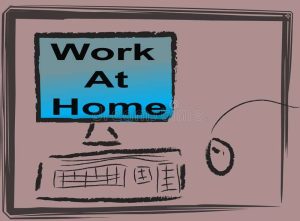
Are You Dismissed When You Are Not Given Shifts?
Termination of employment means that you have either been dismissed/fired or have resigned. However, approximately 19% of the Australian workforce does not have that clarity as they are casuals.[1] Tasmania, South Australia, Queensland, and Western Australia have the highest percentage of casual workers. This may be attributed to tourism being a dominant industry.[2] Therefore, this question is not easy to answer. In fact, the Fair Work Commission does not even have a straightforward answer for this on their website and bench book
If dismissed, do I qualify for a claim?
By definition, a casual worker is one who is employed with no set hours or roster. However, the Fair Work Commission distinguishes casuals into two categories. A regular casual employee (one who works on a regular and systematic basis with a clear pattern or roster of hours) A casual employee who works on an irregular basis and is referred to as a daily hire employee. In other words, you are never sure whether there is future work or not.
Being on rosters, involved in work that takes longer than a day, and working every week even if the days or hours vary is indicative of regular and systematic work.
If you are a casual who works on an irregular basis then you have to consider how often your shifts are and whether this period of time between shifts is out of the ordinary or not. As an irregular casual employee, you are not eligible for an unfair dismissal claim. Even if you have worked the minimum period of service (12 months for a small business, 6 months for a business with more than 15 employees).

Regular and systematic
If you are a casual employee who has a pattern of regular and systematic hours and has not been given shifts. You are entitled to know why this is occurring. The first step is to figure out why you have not been given any shifts, have you been given a warning?, Or have they run out of work?
The term “regular” does not mean, you have had to have worked every day of the week. As long as it implies a regular pattern. Furthermore, “systematic”, is drawn from how the hours of work are allocated. Whether they are done with a roster or some kind of system, method, or plan.
The Full Bench of the Fair Work Commission, Vice President Lawler, Deputy President Drake, and Commissioner Lewin in the unfair dismissal case of Shortland v Smiths Snackfood Co Ltd, defined the periods of service for casual employees as the following[3]:
“Each occasion a casual employee is engaged is a separate contract of employment. These contracts may be week to week, shift to shift, hour to hour or for any other agreed short period. In this sense no casual employee has a continuous period of employment beyond any single engagement.
For the purpose of unfair dismissal, it is the period of service rather than the period of employment that is relevant. If the conditions of s.384(2)(a) are satisfied, then a period of service by a casual employee will count towards the period of continuous service.
Once continuous service is established, the employer or employee may only break continuous service by making it clear to the other party that there will be no further engagements.
For casual employees it is possible that some periods of service will meet the conditions of s.384(2)(a) and others will not.
Absence for illness or injury does not break a period of continuous service.”[4]
Vice President Lawler, Deputy President Drake and Commissioner Lewin
Reasonable expectation of continuing employment
The final aspect of whether a casual is to be considered eligible for unfair dismissal is through the concept of “reasonable expectation of continuing employment. This is dependent on an individual’s circumstances and is primarily an unsettled area of law. In the unfair dismissal claim of Tilbrook v Willall Industries Pty Ltd, a casual was employed for 2 years and 8 months.[5]
During this period of time, the casual had an 11-week period of unavailability. This was deemed by the courts as an interruption to the continuous service. However, they also found that the casual employment since that time, which had weeks without work for the employee, and this was held to be regular and systematic, as there was a reasonable expectation for the employee to have continued employment.

Unfair dismissal eligibility test
The first question we ask our clients is “How long were you employed?”. The Fair Work Commission is stringent with the length of service when it comes to an unfair dismissal claim. If you were working for a business with less than 15 employees, it is considered to be a small business and you must have worked there for at least 12 months to be eligible to lodge an unfair dismissal application. If there are more than 15 employees, you have to have completed a minimum of 6 months of service to lodge an unfair dismissal application.
You have been employed for 6 months or more (for business with more than 15 employees) or 12 months (for a small business) on a regular and systematic basis. You have the same eligibility for an unfair dismissal claim as a part-time or full-time employee. You must have been dismissed at the employer’s initiative as per the Fair Work Act 2009.
As long as the hours have been regular and systematic, there is no minimum number of hours needed to work a week. This was demonstrated in the unfair dismissal case of Matthews v San Remo Fisherman’s Co-Operative. Where an employee who worked one hour a week, one day a week, satisfied the criteria of regular and systematic.[6]

Unfair dismissal rights
If you’re dismissed, you may not be eligible for an unfair dismissal claim. However, you could have certain rights available to you in the form of a general protections claim. If you believe that you have exercised a workplace right (s 340 of the Fair Work Act 2009). Such as asking to have a shift swapped because you are unwell. Or have been discriminated against based on an accepted category such as sex, gender, race, family duties, or nationality, and then lost shifts. This may constitute adverse action ( s 342 of the Fair Work Act 2009).
What is common is that employers know that you have excised a workplace right. Or you have been ill, sexually harassed, whatever. If they dismiss you immediately or give you no work then there is a causal link between the right and the dismissal. So the trend with casual employees is just to reduce your hours, “don’t come in this week we are not busy”, to the point you simply just don’t hear from the employer. Then when you ring, no answer, text no response. You ring the payroll person or the administration person they say they don’t know what’s going on. The goal of the employer is that you simply just go away. You’re frustrated, have no income and you move on.
General protections no minimum period
Unlike the criteria for an unfair dismissal application. A general protection application does not have a minimum period of service, nor do they distinguish between full-time, part-time, and casual employees. The only category exempt from general protection claims is volunteers. Remember: The Fair Work Commission has a strict 21-day deadline from the last day of work for lodging claims. This includes weekends and public holidays.
Conclusion to “Are You Dismissed When You Are Not Given Shifts?”
If you feel that you have been dismissed because you are no longer receiving shifts from your employer. Give us a call. We are A Whole New Approach P/L, we are not lawyers, we are leading workplace advisors, representatives, and commentators. Anything to do with the workplace, give us a call. Workers’ rights, employment rights, casual rights, probation issues, abandonment of employment, whatever.
Based in Victoria, we work on a national basis, in NSW, QLD, WA, and everywhere.
Call 1800 333 666
Similar to “Are You Dismissed When You Are Not Given Shifts?”
In the pandemic what are my rights?
What does casual employment mean?
How much is your unfair dismissal claim worth?
Dismissed (abandonment of employment)
Citations
[1] Australian Bureau of Statistics (2020), Insights into casual employment, occupation, and industry, https://www.abs.gov.au/articles/insights-casual-employment-occupation-and-industry.
[2]Geoff Gilfillan (2020) ‘COVID-19: Impacts on casual workers in Australia- a statistical snapshot’, Department of Parliamentary Services, p. 5, https://www.aph.gov.au/About_Parliament/Parliamentary_Departments/Parliamentary_Library/pubs/rp/rp1920/StatisticalSnapshotCasualWorkersAustralia
[3] [2010] FWAFB 5709
[4] Ibid.
[5] [2011] FWA 6300
[6] [2019] FWC 4877






